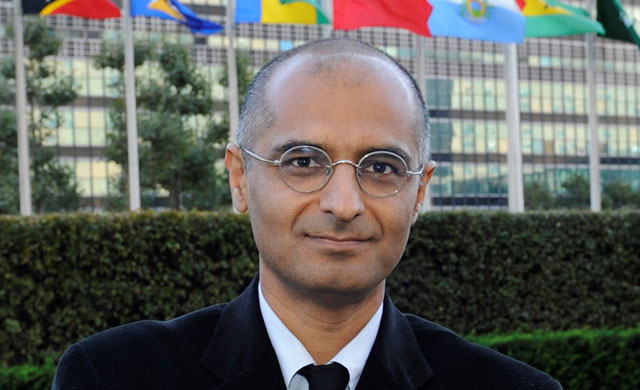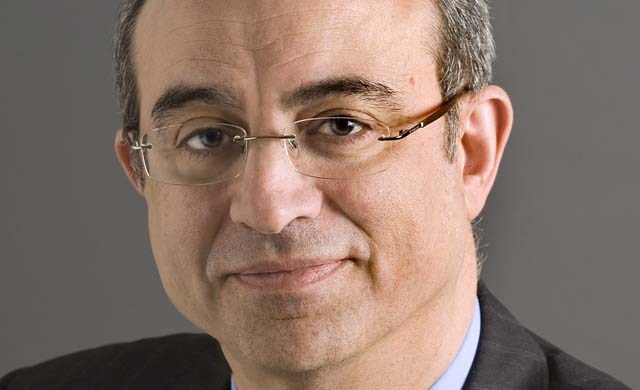EWI’s Vice President, Middle East & North Africa Program, Kawa Hassan, appeared on Al Araby TV on November 2 to analyze the prospects of ongoing protests in Iraq and the reaction of the ruling class. The other two speakers participating in the interview were Professor Akeel Abbas, Lecturer, American University of Iraq, Sulaimani and Dr. Haider Saeed, Head of Research Department, Arab Center for Research and Policy Studies & Editor-in-Chief of the Siyasaat Arabiya Journal, Doha.
Click here to watch the interview on Al Araby TV (Arabic). Hassan’s comments are at the intervals 10:17-13:30, 19:34-23:12, and 31:26-33:30.
Two Symbolic Spots
The protesters in Baghdad want to get to the Green Zone due to its symbolism- this is the place where the government, political class and foreign embassies are based. The demonstrators associate this zone with the corruption of the ruling elite. Tahrir Square is the place where demonstrators come together, chant their slogans and vent their anger at the government- this square was the scene of previous mass demonstrations and therefore has a huge symbolic value for the protest movement. The demonstrations are not confined to Baghdad, though. There are big demonstrations in southern provinces since the South of Iraq has been marginalized; the corruption of ruling elites in these provinces is unprecedented and ubiquitous.
Twin Tsunamis: Enough is Enough
We can consider these demonstrations as twin tsunamis -political and popular- that have shaken Iraqi politics to its core. The unprecedented acts of resistance surprised the ruling elite, even the traditional populist leader Sadr, the classical opposition and the protesters themselves. This is due to the rising political consciousness of the Iraqis in general and the youth in particular. Two factors contributed to this increased popular awareness. First, state capture and corruption of the post-2003 political class have reached astronomical levels. The Iraqis are fed up with the failings of the ruling class and refuse to accept it any more. The corruption has reached a level that even the ruling elite itself acknowledges it as fact. Second, social media played a decisive role in popular mobilization. Having said that, we should not fall into the trap of romanticizing and idealizing social media.
Revolutionary Moment, New Nationalism
The creative, innovative, revolutionary, determined nature of the protest movement, in particular during the second wave that started on October 25, has empowered ordinary citizens and made them a force to be reckoned with. There is a sense of a new Iraqi nationalism championed by Shiites, but it is cross-sectarian at the same time. For the first time since 2003 we observe the emergence of a social movement that refuses to be monopolized by traditional opposition such the Sadrist movement. However, even though the Sadrist movement is not at the center of the protest movement, its members and supporters actively participate in the demonstrations. The populist cleric Muqtada al-Sadr is trying his best to remain an important part of the protest movement.
Impossible Reform?
The Prime Minister, President and Speaker of Parliament announced a series of reforms. But given the violent response of security forces and lack of willingness to implement real reforms, these measures come as too little, too late. A recent decision by the Iraqi parliament summarizes the two systemic problems of the post-2003 political class, namely Muhasasa Ta’ifia (sectarian apportionment of government posts based on sectarian, ethnic loyalties and not merits) and lack of political will to reform this sectarian system. At the height of the demonstrations, the parliament decided to appoint the heads of the federal service authority and Iraqi media network on the basis of the infamous Muhasasa Ta’ifia against which the Iraqi people are protesting, doing business as usual as if nothing had happened. Iraqi leaders missed a historic opportunity to regain the trust of the Iraqi people and demonstrate to the protestors and international community they are serious about reforming the system. As a result, at the moment Iraq is stuck in a political deadlock.
Future Prospects
Despite the conflict between Iran and the US, paradoxically it seems at least for now that both countries want to support the Iraqi government due to fear for the unknown and the threat of chaos, albeit for different strategic reasons. What will happen next depends on the actions of the government and political class. If security forces continue to use brute force against demonstrators, and ruling elites refuse to implement real, serious and meaningful reforms, one scenario might be that the protesters will become radicalized, or even militarized to defend themselves.




